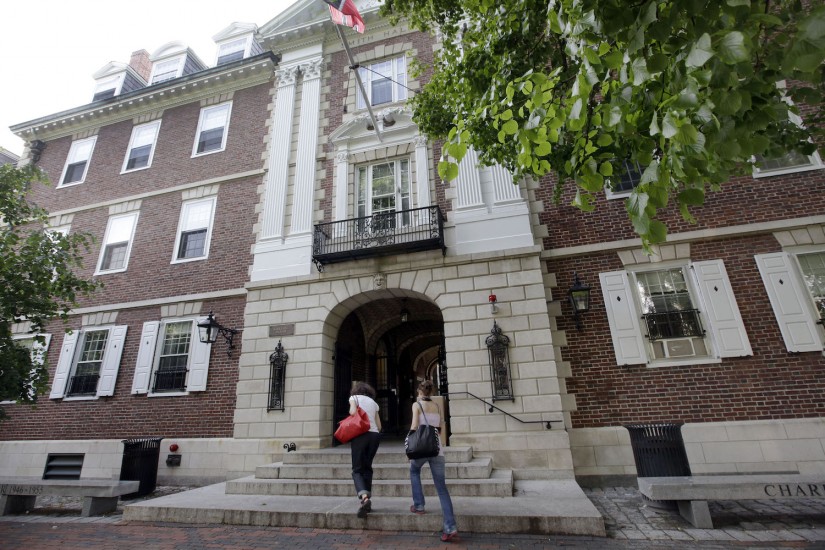There was a time when Facebook was small. After all, it only existed in one place on Earth: Harvard University, where Mark Zuckerberg was a sophomore. He lived in Kirkland House, a square of brick buildings arranged around a courtyard, one side hemmed in by JFK Street. For all the tendrils that Facebook now has snaked across the globe, it feels strange that one can pinpoint the moment it all began: 6 p.m. on February 4, 2004, as the temperature dipped below freezing on another day in Cambridge.
Within weeks, the social network would spread across the school; within months, the Ivy League. High schoolers arrived the next year, then college students across the globe, and finally anyone who wanted to in September 2006. Four years after it was founded, Facebook hit 100 million users. Four years after that, 1 billion. Now 2 billion people use Facebook every month. That’s 500 million more users than the total number of personal computers in use around the globe.
Sarah Goodin was there in Kirkland House too. She was a sophomore like Zuckerberg, and friends with Chris Hughes, another one of the site’s co-founders. So, shortly after it launched, Zuckerberg emailed her and asked her to try his new thing. As far as anyone can tell, she was the 15th total user. “Supposedly, I am the first woman on Facebook,” Goodin, now an exhibit developer and interactive designer at the California Academy of Sciences, told me.
She can’t quite remember her first impression of the site. “It was kind of a nonevent. He made this kind of stuff and we were buddies ... so, I thought, I’ll try it,” she said. “I don’t remember the time I first logged in being like, Oh, wow!”
But something did happen. She got a bunch of her friends to sign up. I don’t know for sure, but she was probably how I ended up on Facebook, because I, too, was in Kirkland House and was friends with Sarah Goodin.
There was no photo sharing, no News Feed, no apps, no games, no events. TheFacebook, in those first few months, was merely a database of profile pages of other people at Harvard. It combined the insularity and intimacy of an elite college with the user-generated network-effect frenzy of what was just beginning to be called Web 2.0. I’d been on the internet for more than 10 years at that point, and I’d never seen anything spread like that, not even Harvard’s anonymously run local file-sharing movie server, Llama, or its other, less couth file-sharing server, which distributed porn. TheFacebook conquered Harvard immediately and completely, and then it did precisely the same thing over and over again, whether it was with fishermen in Tamil Nadu or bus drivers in Ontario or high schoolers in Sarasota. Everything about Facebook has changed from then to now, except Mark Zuckerberg and the network’s ability to spread.
